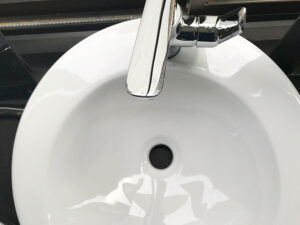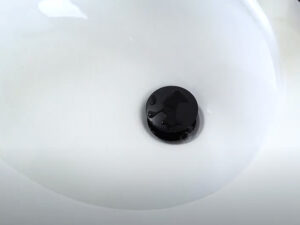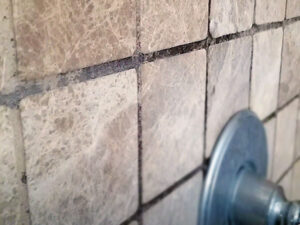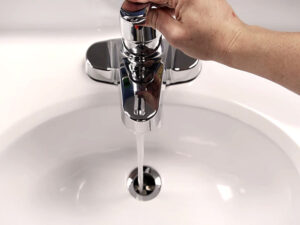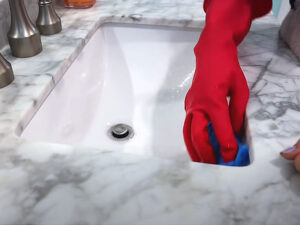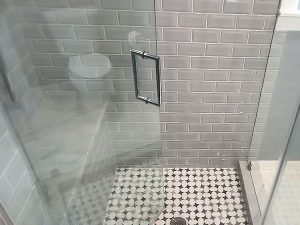Imagine entering your bathroom and expecting to take a leisurely shower, only to be met by a filthy, rusted shower head. It can be depressing to see those reddish-brown stains, but have no fear—today, I’m going to share my tried-and-true techniques for getting the rust out of a shower head. I’ve dealt with many rusted fixtures over the years and have developed certain skills for bringing back their luster and functioning.
In addition to being unsightly, a rusted shower head can hinder water flow and cause clogs. To ensure a revitalizing shower experience each and every time, it is imperative to address this issue head-on. You can say goodbye to rust and bring your shower head back to its former splendor by following a few straightforward steps and using some basic home materials.
I’ll walk you through the procedure in this blog article while offering useful tips that have in the past done wonders for me. So let’s get our hands dirty and set out on a mission to permanently remove rust from your bathroom.
How to Remove Rust from a Shower Head in 7 Easy Steps
Rusted shower heads in bathrooms can be ugly and impair water flow. Fortunately, following these seven easy techniques will help you remove rust:
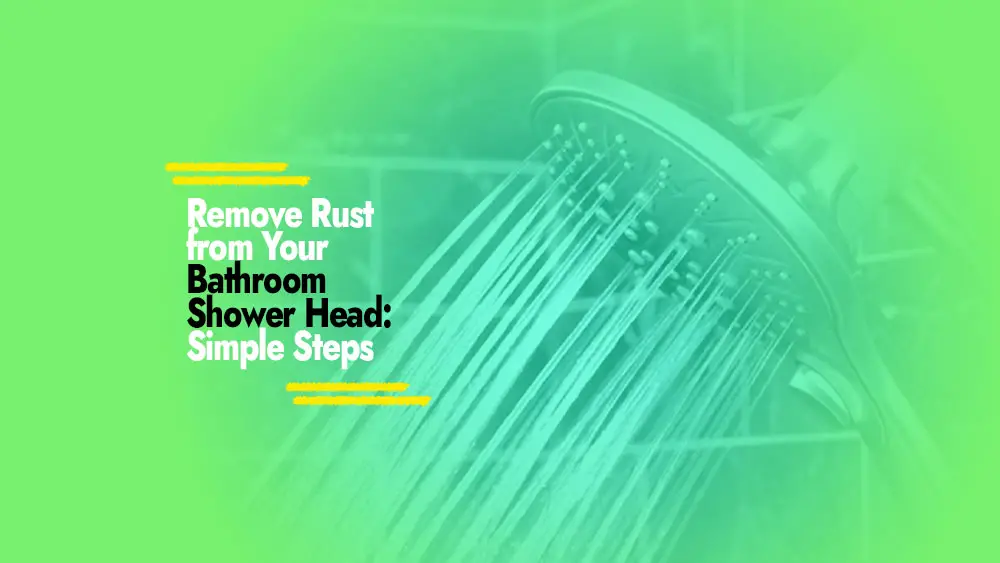
Step 1: Compile the required materials
Gather all the necessary materials before you start. These include rubber bands, a soft-bristled toothbrush, white vinegar, a plastic bag, baking soda, and a clean cloth. The rust cleaning process will go more smoothly and effectively if everything is prepared.
Step 2: Remove the shower head
Start by cutting off the water supply to the shower before removing the shower head. Typically, you can do this by turning off the main water supply or the water valves that are close to the shower. Once the water has been shut off, detach the shower head from the pipe using an adjustable wrench or pliers. Take caution not to cause any connection damage during the process.
Step 3: Place the showerhead in a bowl of vinegar
White vinegar should be added to a plastic bag until it completely covers the shower head. As you put the shower head into the bag, make sure the vinegar completely covers it. Rubber bands are used to tightly secure the bag around the shower head. The acidity of the vinegar will aid in dissolving the rust. Allow the shower head to soak for at least an hour or, in cases of extreme rust development, overnight.
Step 4: Rub the rust off
Remove the shower head from the vinegar solution once it has soaked. Scrub any last bits of rust away gently using a toothbrush with soft bristles. Pay particular attention to the locations with the most rust. To protect the shower head’s surface, be thorough but kind. After you’ve completed cleaning, properly rinse the shower head with water to get rid of any remaining vinegar.
Step 5: Make a paste out of baking soda
To make a thick paste, combine baking soda and a tiny amount of water in a small bowl. Spreadability is ideal, but it shouldn’t be very runny. Due to its mild abrasiveness, baking soda can help remove stains and rust without harming the showerhead’s surface.
Step 6: Apply the baking soda paste
Apply the baking soda paste to the shower head with your fingertips or a towel, paying special attention to the rust-prone regions. Make sure the paste completely encloses the corroded regions. Spend 15 to 20 minutes letting the baking soda paste settle on the shower head. This will give the baking soda enough time to do its job and remove any rust that may still be there.
Step 7: Rinse the shower head and reinstall it
Rinse the shower head with water completely after the baking soda paste has had time to act. Make sure to eliminate all paste remnants as well as any rust flakes that have become loose. Look for any leftover rust on the shower head. Repeat steps 4 through 6 as necessary to remove all rust. Reinstall the shower head to the pipe and make sure it is securely fastened. To tighten it, use the adjustable wrench or pliers, but take care not to overtighten it because that could harm the threads.
You can successfully remove rust from your bathroom shower head and restore both its performance and attractiveness by following these seven steps. Always use caution when handling chemicals and instruments, and when in doubt, always refer to the manufacturer’s instructions. Enjoy taking a rust-free, spotless shower!
3. Additional Techniques for Cleaning a Bathroom Shower Head of Rust
There are additional techniques you can try to remove rust from a bathroom shower head in addition to the seven-step strategy that was previously supplied. These techniques might be helpful if you prefer different strategies or if the rust is really difficult to remove. Let’s get more into these alternate approaches:
Salt with Lemon Juice
Rust can be removed naturally by mixing lemon juice and salt. Lemons are cut in half, and the juice is squeezed into a basin. Lemon juice is blended with significant amounts of salt to form a paste. Directly apply the paste to the shower head’s rusty parts, and then let it sit for a couple of hours. After that, gently scrub the rust away with a toothbrush or cleaning pad. Rinse the shower head with water completely.
Coca-Cola
With its acidic qualities, Coca-Cola can be surprisingly successful at removing rust. Fill a bowl with enough Coca-Cola to cover the shower head entirely. For many hours or overnight, let the shower head sit in the Coca-Cola solution. After that, thoroughly rinse the shower head with water while cleaning the rusty areas with a toothbrush or cleaning pad. If more than once is required, repeat this process.
Citrus Juice and Baking Soda
Baking soda and vinegar combined together produce a bubbly reaction that can aid in rust removal. To make a paste, combine baking soda and white vinegar in equal amounts. Apply the paste to the shower head’s rusty parts, then wait one to two hours before using it. Use a toothbrush or cleaning pad to remove the rust, and then thoroughly rinse the shower head.
Products to Remove Rust
You might think about employing rust-removing treatments that are available on the market if the rust on your shower head is persistent and none of the natural remedies seem to be working. These treatments can be very successful because they are made specifically to dissolve rust. To use a particular product properly, pay attention to the usage instructions that came with it. Normally, you would apply the rust remover to the shower head, allow it to sit for a predetermined amount of time, scrub the rust off, and then thoroughly rinse the shower head.
Stahlwound or sandpaper
Sandpaper or fine-grade steel wool may be used to remove more difficult-to-remove rust. Start by lightly wiping the rusty portions of the shower head with moist steel wool or sandpaper. Avoid applying too much pressure or scratching the surface. Rub the shower head until all of the rust is gone, then give it a good water rinse.
Cleaner for CLR (Calcium Lime Rust)
A commercial product called CLR cleaner was created especially to get rid of calcium, lime, and rust stains. It can be quite successful in removing stubborn rust from a shower head. For proper usage, adhere to the directions on the CLR cleaner bottle. Normally, you would spray the CLR cleaner on the shower head, let it sit for a predetermined amount of time, scrape the rust off, and then thoroughly rinse the shower head.
Replacement
If everything else fails and your shower head has significant corrosion or has aged and degraded, it might be time to think about replacing it. Find a new showerhead that fits your needs and price range. This could be an opportunity to switch to a shower head that is more effective or aesthetically beautiful, giving you a rust-free and pleasurable showering experience.
Keep in mind that it is crucial to adhere to safety measures and product instructions when attempting these alternative approaches. Due to the use of chemicals, some techniques can necessitate wearing gloves or working in a well-ventilated location. Additionally, pay attention to the shower head’s materials to prevent any possible harm when the rust is removed.
FAQs
Can I stop my shower head’s rust from forming?
While it can be difficult to totally stop rust from accumulating on a shower head, there are things you can take to reduce its likelihood. Rust can be prevented or delayed by performing routine cleanings, drying the shower head after use, and utilizing materials that are resistant to rust.
Is it possible to remove rust from a showerhead with any kind of vinegar?
Due to its acidic nature, white vinegar is frequently used to remove rust from shower heads. It efficiently eliminates rust without causing any harm. Apple cider vinegar and balsamic vinegar should not be used as they could not be as effective.
What should I do if the shower head cannot be unscrewed due to corrosion?
You might need to use a penetrating oil, like WD-40, to remove the rusted pieces if the shower head is badly corroded and cannot be unscrewed. Use an adjustable wrench or pliers to try to unscrew the shower head once again after applying the oil to the connections and letting it sit for a few hours.
Is cleaning a showerhead using baking soda safe?
Yes, it’s okay to use baking soda on a showerhead. It is a gentle abrasive that can aid in rust removal without endangering the surface. However, keep in mind that employing corrosive or abrasive cleaners can harm or damage the shower head.
How frequently should my shower head be cleaned to avoid rust?
Cleaning your shower head on a regular basis can help avoid rust accumulation. If you reside in a region with hard water or observe symptoms of rust growing, try to clean it more frequently or at least once every few months.
Is it possible to clean rust off a shower head using a wire brush?
The surface of the shower head could be damaged or scratched if you use a wire brush. To remove the rust, it is preferable to scrape it with a soft-bristled toothbrush or a non-abrasive cloth. By doing this, you can be confident that the shower head won’t sustain any further harm and will stay whole.
What happens if you follow the instructions yet the rust still remains?
After following the instructions in the article, if the rust still isn’t entirely removed, you can try again or use a commercial rust remover made especially for bathroom fixtures. To prevent any negative consequences, carefully adhere to the manufacturer’s directions and use prudence.
Are there any other ways to get the rust off a showerhead?
Yes, there are other ways to get rust out of a showerhead. Others could use a professional rust remover, while others use a solution of lemon juice and salt. If not performed correctly, these techniques could potentially harm the shower head and have varying degrees of efficiency. If doubtful, it is best to do some study, abide by reputable sources, or seek professional advice.
Can I stop my shower head from rusting in the future?
Consider installing a rust-resistant shower head made of materials like stainless steel or plastic to help reduce future rust accumulation. The shower head’s lifespan and look can also be extended by wiping it dry after each use and taking care of any plumbing concerns that might contribute to the creation of rust.
Conclusion
To preserve a bathroom showerhead’s beauty and operation, rust removal is an easy but crucial task. This guide’s seven stages will help you properly get rid of rust and bring your shower head back to its former splendor.
The shower head should be removed, soaked in vinegar to remove any remaining rust, applied with a baking soda paste1, properly rinsed, and then securely reattached. Don’t forget to obtain the necessary supplies.
Your shower head’s lifespan can be extended and potential rust buildup can be avoided with routine maintenance and preventive actions. A shiny, rust-free shower head can invigorate your showering experience.


